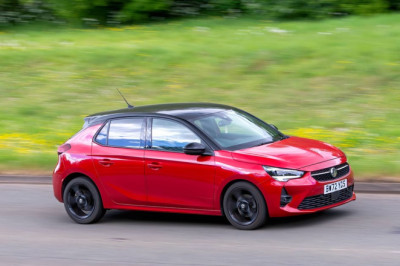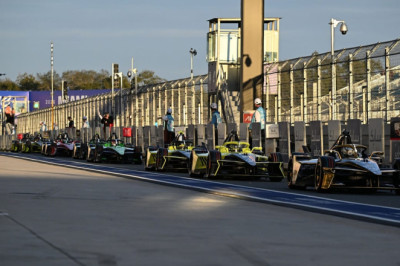
Because there aren’t enough jumbo-sized SUVs out there already, Audi is preparing its biggest Q model to date. In 2026, the Q9 will finally join the lineup after years of rumors about a luxobarge from Ingolstadt to take on the BMW X7 and Mercedes GLS. The Four Rings have certainly taken their time to enter the full-size SUV segment, but as the saying goes, better late than never.
Audi’s development boss, Geoffrey Bouquot, told Automobilwoche the Q9 will arrive next year alongside a new Q7. The latter has been around for a decade, undergoing two facelifts to stay fresh against the X5 and GLE. Both newcomers will share the Premium Platform Combustion (PPC) with the latest A5, Q5, and A6. The same underpinnings are expected for Porsche’s new gas-powered Macan replacement, due in 2028.
While Bouquot didn’t go into detail about the new models, PPC has been engineered to accommodate gasoline, diesel, mild-hybrid, and plug-in hybrid drivetrains. The hardware also supports range extenders, though Audi hasn’t said whether the Q7 or Q9 will adopt this technology. Interestingly, there are rumors that BMW’s future X5 will revive the range-extender setup once used in the odball i3 hatchback.
The Q9 won’t be the only new luxury living room on wheels in the Volkswagen Group portfolio. Porsche is also working on a three-row SUV that was initially planned as a pure EV, but Zuffenhausen had to rethink the project and add combustion engines with plug-in hybrid options into the mix. Positioned above the Cayenne, the newcomer will launch with gas engines first, while the EV version has been delayed.
That’s not to say Audi and Porsche are reverting to conventionally powered cars altogether. Even niche products like Audi’s Concept C and Porsche’s next 718 will be EVs, though top Boxster and Cayman trims will still offer gas engines. The strategy now is to diversify rather than bet on a single drivetrain type. Managing such complex portfolios isn’t easy, but it’s the smart move considering how varied customer demands are.














